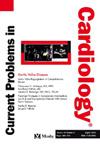Precision medicine applications in dilated cardiomyopathy: Advancing personalized care
IF 3.3
3区 医学
Q2 CARDIAC & CARDIOVASCULAR SYSTEMS
引用次数: 0
Abstract
Dilated cardiomyopathy (DCM) is a prevalent cardiac disorder affecting 1 in 250–500 individuals, characterized by ventricular dilation and impaired systolic function, leading to heart failure and increased mortality, including sudden cardiac death. DCM arises from genetic and environmental factors, such as drug-induced, inflammatory, and viral causes, resulting in diverse yet overlapping phenotypes. Advances in precision medicine are revolutionizing DCM management by leveraging genetic and molecular profiling for tailored diagnostic and therapeutic approaches. This review highlights comprehensive diagnostic evaluations, genetic discoveries, and multi-omics approaches integrating genomic, transcriptomic, proteomic, and metabolomic data to enhance understanding of DCM pathophysiology. Innovative risk stratification methods, including machine learning, are improving predictions of disease progression. Despite these advancements, the current one-size-fits-all management strategy contributes to persistently high morbidity and mortality. Emerging targeted therapies, such as CRISPR/Cas9 genome editing, aetiology-specific interventions, and pharmacogenomics, are reshaping treatment paradigms. Precision medicine holds promise for optimizing DCM diagnosis, treatment, and outcomes, aiming to reduce the burden of this debilitating condition.
精准医学在扩张型心肌病中的应用:推进个性化护理。
扩张型心肌病(DCM)是一种常见的心脏疾病,每250-500人中就有1人患病,其特征是心室扩张和收缩功能受损,导致心力衰竭和死亡率增加,包括心源性猝死。DCM由遗传和环境因素引起,如药物诱导、炎症和病毒引起,导致多种多样但重叠的表型。精准医学的进步正在通过利用基因和分子谱来定制诊断和治疗方法,彻底改变DCM的管理。这篇综述强调了全面的诊断评估、遗传发现以及整合基因组、转录组、蛋白质组和代谢组数据的多组学方法,以增强对DCM病理生理的理解。包括机器学习在内的创新风险分层方法正在改进对疾病进展的预测。尽管取得了这些进展,但目前一刀切的管理策略导致了持续的高发病率和死亡率。新兴的靶向治疗,如CRISPR/Cas9基因组编辑、病因特异性干预和药物基因组学,正在重塑治疗范式。精准医学有望优化DCM的诊断、治疗和结果,旨在减轻这种使人衰弱的疾病的负担。
本文章由计算机程序翻译,如有差异,请以英文原文为准。
求助全文
约1分钟内获得全文
求助全文
来源期刊

Current Problems in Cardiology
医学-心血管系统
CiteScore
4.80
自引率
2.40%
发文量
392
审稿时长
6 days
期刊介绍:
Under the editorial leadership of noted cardiologist Dr. Hector O. Ventura, Current Problems in Cardiology provides focused, comprehensive coverage of important clinical topics in cardiology. Each monthly issues, addresses a selected clinical problem or condition, including pathophysiology, invasive and noninvasive diagnosis, drug therapy, surgical management, and rehabilitation; or explores the clinical applications of a diagnostic modality or a particular category of drugs. Critical commentary from the distinguished editorial board accompanies each monograph, providing readers with additional insights. An extensive bibliography in each issue saves hours of library research.
 求助内容:
求助内容: 应助结果提醒方式:
应助结果提醒方式:


